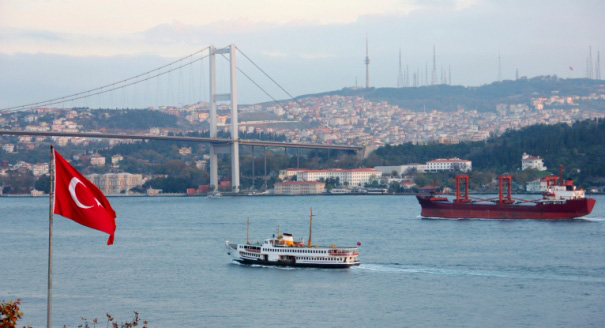On February 16, Armenian President Serzh Sargsyan appealed to Galust Saakyan, the chair of the National Assembly, to cancel the bilateral Armenian-Turkish protocols signed in Zurich on October 10, 2009. A product of the so-called “soccer diplomacy,” the protocols were agreed upon in the context shifting geopolitical realities in the Caucasus in the wake of the 2008 Russo-Georgian War.
Though some considered it to be a critical milestone in relations between Ankara and Yerevan, few believed it would entail a substantial breakthrough at the ground level. If fully implemented, the protocols could have opened up promising economic opportunities for Armenia. For Turkey, it could have increased opportunities for regional engagement. Further, it could have helped to ease the historical tension over the 1915 Armenian Genocide that still strains the Armenian-Turkish relationship.
However, the document was dead on arrival for two of the agreement’s principal stakeholders: the Armenian diaspora and the Azeri constituency in Turkey. Ultimately, these actors played a significant role in blocking the protocols’ ratification.
As a result, Sargsyan’s decision came as little surprise to many observers of the region. It would be hard to claim the move derailed the “normalization process” because there was little of substance to derail. In essence, the decision had a three-fold domestic rationale.
First, President Sargsyan needed to mark the centenary of the Armenian Genocide, to be commemorated on April 24, with a decisive political gesture. The move was supposed to advance two goals: to emphasize the tragedy for Armenians, thereby gaining domestic support, and to create a new context for bilateral relations, politicized or not. This argument has been put forth—under different premises—by a majority of experts in Armenia as well as in Turkey where pundits too anticipated “a spoiler from Armenia on the eve of the date.”
Second, Sargsyan is facing domestic opposition from a variety of political actors, including his former allies. Therefore, bringing up the most important part of Armenia’s historical memory was an easy way to score points with all domestic constituencies.
Finally, the president’s move helped placate a serious player in Armenian politics: the diaspora. He gained support by presenting himself not as the president of the country but rather as the leader of all Armenians.
One country that should be watchful of future Armenian-Turkish relations is Russia. Recently, Moscow has been warming up to Ankara, seeing the world’s eighteenth largest economy as an important partner in the “new political reality” with the West. At the same time, the Kremlin deems Armenia a critical—and, at this point, singular—ally in the South Caucasus. It took a great deal of diplomatic maneuvering, and a number of security guarantees and economic carrots to lure Yerevan into the Eurasian Economic Union. The recent tragedy in Gyumri has made portions of Armenian society question the importance of Russia as an ally for Armenia, which has made the Russian public uneasy about Yerevan’s loyalty.
Several analysts hoped there would be some kind of agreement worked out to foster the Armenian-Turkish relationship. However, should the relationship descend into a greater hostility, it may send greater shockwaves across the region and require tough choices of neighboring capitals. In this respect, the exacerbation of the Nagorno-Karabakh conflict could fuel greater animosity. In such a fragile context, any move Russia makes will be under increased scrutiny. Not only should Russia be cautious with its public rhetoric which frequently damages the Kremlin’s image, it should also begin to formulate a long-term strategy that could marry its own interests toward the two important states of Turkey and Armenia.
Maxim A. Suchkov, a former Fulbright visiting fellow at Georgetown University (2010–11), is currently a contributor to Al Monitor (Russia Pulse) and fellow at the Institute for Strategic Studies (Pyatigorsk).





